We held our second ‘members connect’ online conversation on 2nd April and heard from across the membership about the emerging themes from engaging with students and sector colleagues during lockdown. A brief summary from our discussion is included below:
1. A new kind of working intensity
Colleagues have found that lockdown has created a new kind of work intensity as teaching has been transferred online and routine academic activities (committees, validation events and management meetings) have also shifted to online TEAMS or related applications. The intensity of these meetings has created challenges for adapting diaries and drawing lines between home and work life.
2. Students in isolation
There were reports of increasing numbers of students in isolation and reports of issues related to loneliness. Staff were being drawn in to wider support roles and supporting students to connect and/or maintain interaction in difficult circumstances.
3. Impact on voluntary and charity sector organisations
There was concern expressed about the impact of lockdown on the services and capacity of youth work agencies in the community. While there were many examples of resilient and innovative practices, colleagues were aware of some agencies that were extermely vulnerbale and facing financial difficulties.
4. Support for student workers still in practice
Some student youth workers are still in practice and being designated as essential workers by some local authorities. This was creating opportunities for raising the ‘essential’ status of youth work services but also challenges in securing appropriate support, PPE and guidance in practice settings.
5. Concerns about profiling of young people during Covid-19
There were a range of concerns expressed about how young people are either profiled negatively or overlooked entirely during the crisis. There was increasing awareness of the mental health of young people both now and what is anticipated to be amplified after the crisis. There was a call for further mapping and recording of stories from young people and youth work to articulate what was happening around us.
6. New ‘power’ for academic staff
The rapid change in working conditions, requirements and challenges faced by students has required Universities to place greater trust in academics to make decisions that would normally require layers of academic bureaucracy. This new delegated ‘power’ was seen as a potential reset for building trust in teaching staff to make informed decisions about student welfare, progression and competency. Questions were raised about how we sustain and restore this approach in working practices post covid-19.
Finally, with recognition of the increasing demands on teaching staff to make allowances for ‘no detriment’ it was agreed to make this the starting subject of the next online discussion after the easter break.
See our events pages for future online dates and discussion themes.

